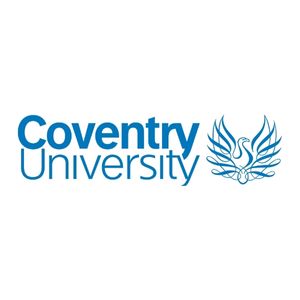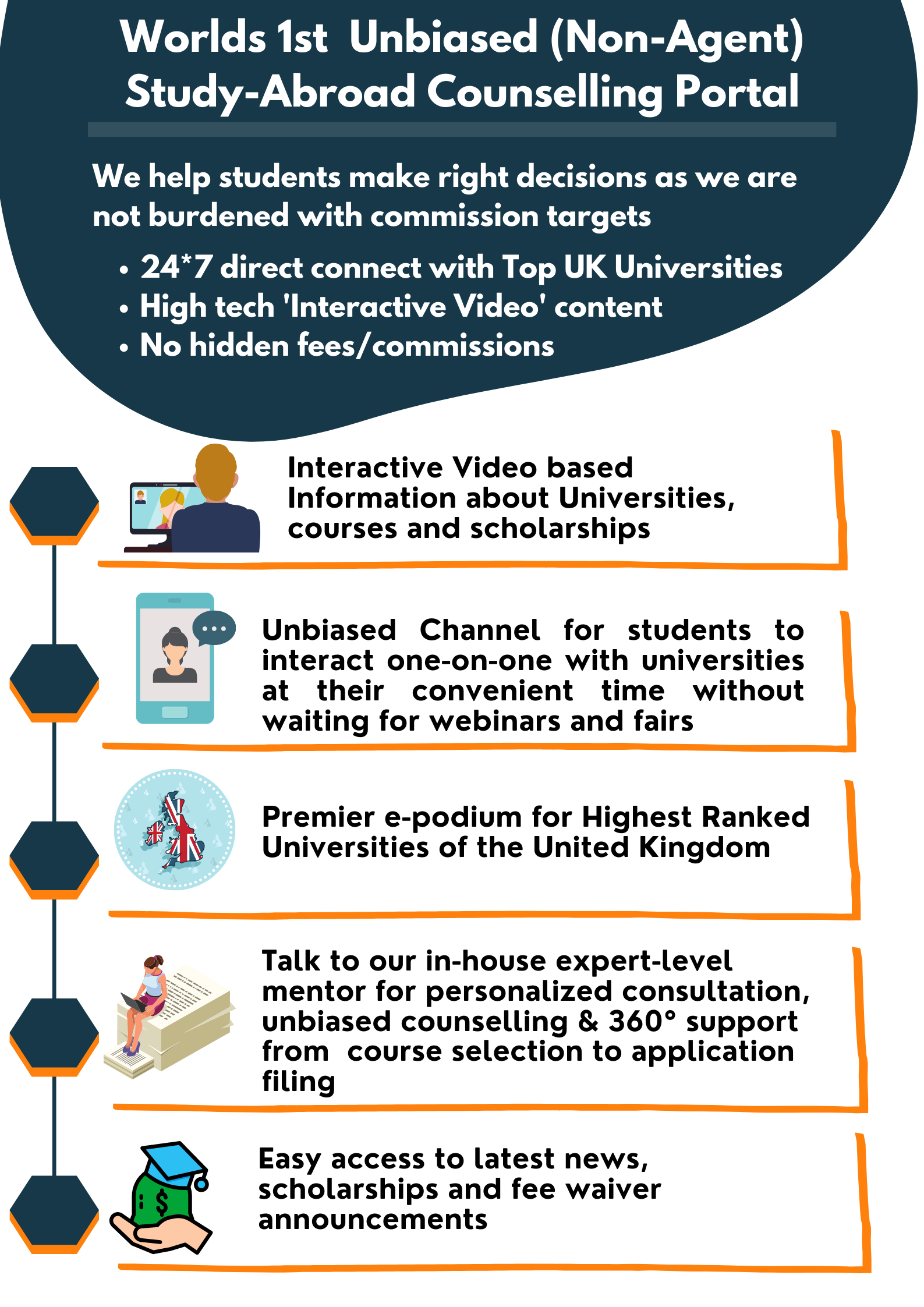Link copied to clipboard
- Home
- MSc- Global Financial Trading with Extended Professional Practice
About MSc- Global Financial Trading with Extended Professional Practice
Explore this course:
Course Highlights
- With this course, students analyse the background of the financial trading domain which helps them to build qualitative & quantitative skills.
- Students acquire practical orientation & hands-on experience in the field of trading by interpreting the behaviour of international financial markets through simulated trading floors.
- This course is designed in close consultation with city financial traders & is acquainted with the advice of experts in this area.
- Through this course, proficiency in international economic parameters, market behavior analysis, algorithm trading, technical indicators & quantitative portfolio management is delivered to the students, which is essential to become a well-to-do trader
- The MSc- Global Financial Trading at Coventry University, London is 1-year full time masters level course available with an option of Extended practice
Course Eligibility
Academic Requirements-
A 60% in a 3 Year Undergraduate Degree in a relevant subject or
a 55% in a 4 Year.Undergraduate Degree in a relevant subject
Students from the following Universities will be considered with 55% in a 3 Year Undergraduate Degree – Delhi, Mumbai, Kolkata, Chennai (Madras), Anna, Amity, Andhra Pradesh, Aligarh Muslim, Pune, Bangalore and JNTU.
English Language Requirements-
A 65% in Standard XII English language from certain examination boards only (Central boards, Maharashtra, West Bengal, Karnataka, Tamil Nadu, Andhra Pradesh, Kerala and Uttarakhand)
OR
IELTS 6.5 overall with no component lower than 5.5 (except where course requirements are higher) and other acceptable SELT tests such as the Pearson Test of English (PTE).
Course Fees
International Fees - £19,350 (Extended Professional Practice) per year
Career Prospects
- Career pathways for graduates from this course are risk management, algorithm trading, portfolio managers, financial analysts, asset management, investment & credit analysis, trading & brokerage, corporate financiers, or working for global finance & government agencies.
- Previous graduates have been working at IBM, Investment Management, CitiBank, and Trading Houses or have indulged in pursuing a Ph.D in financial computing.
Key Learnings
- By studying this course, students learn to make relevant decisions on time for evaluating & accessing the right information.
- Students gain knowledge about vital business, financial disciplines & techniques for performing in a financial sector, whilst being able to apply them in practice.
- On completing this course, students know how to utilize analysis power, strategic methods & communication skills for meeting analytical issues of the rapidly transforming financial services industry.
- Professionals guide students to use industry-standard trading desk technologies for researching & examining market data & execute simulated trades.
Study Benefits
- Study in London, the top global finance and asset management city, and get the opportunity to visit the Bank of England, Wall Street & London Stock Exchange
- During studies, students get a chance to work on software simulations, consultancy assignments, group tasks & discussions, business reports & job experience placements.
- This course teaches the students to appraise the existing & future surroundings in which businesses function whilst preparing a competitive, strategic response.
- Post-graduation students can manage their learning & self-growth using a range of personal skills & competencies for performing effectively in the industry.
- With this course, you gain access to Bloomberg Trading Floor which is the latest global financial information platform with research & simulated projects
- With the Standard & Poor Market Intelligence Suite (S&P) you can gain knowledge on how to record performance, recognize investment concepts & keep -up with the industry updates
- There is also the Talent Team which assists the students with work placements, mock interviews, graduate-level jobs & skill development workshops
Core Modules
This course aims to offer hands-on experience in the art of trading. This practical dimension is underpinned by a solid grounding in the behaviour of global financial markets, the principles of equity trading and evaluation, bond trading and financial derivatives, stock markets in emerging economies, and proprietary trading
Your main study themes shall be :
Change
The recent financial crisis has led to fundamental economic, social, technological and geo-political changes, and the emergence of new and different realities in the markets. To respond effectively, traders, managers and leaders must develop very different patterns of thinking and behaviour.Decision support
Successful trading depends on making the right decisions at the right time – which depends, in turn, on being able to access and analyse the right information.Managing risk
Risk and reward are two sides of the same coin. Therefore, to achieve rewards, you must identify, assess, model and mitigate risk – and you must also master the various tools, including technology, which will help you.Ethics
The crisis has also led to greater ethical scrutiny of trading in order to avoid a repeat of the morally dubious/illegal conduct which came to light; for example, trading sub-prime mortgages bundled into securities; trading financial instruments too complex to understand; and banks rigging interest rates in their favour
The Core modules are
- Economics for Financial Markets
- Quantitative and Research Methods
- Equity Markets and Analysis
- Fixed Income Markets and Analysis
- Econometrics for Finance
- Algorithmic Trading
- Stochastic Finance
- Derivatives and Alternative Investment
- Extended Professional Practice 1
- Extended Professional Practice 2
- Extended Professional Practice Project
Last updated on January 9, 2023
- With this course, students analyse the background of the financial trading domain which helps them to build qualitative & quantitative skills.
- Students acquire practical orientation & hands-on experience in the field of trading by interpreting the behaviour of international financial markets through simulated trading floors.
- This course is designed in close consultation with city financial traders & is acquainted with the advice of experts in this area.
- Through this course, proficiency in international economic parameters, market behavior analysis, algorithm trading, technical indicators & quantitative portfolio management is delivered to the students, which is essential to become a well-to-do trader
- The MSc- Global Financial Trading at Coventry University, London is 1-year full time masters level course available with an option of Extended practice
Academic Requirements-
A 60% in a 3 Year Undergraduate Degree in a relevant subject or
a 55% in a 4 Year.Undergraduate Degree in a relevant subject
Students from the following Universities will be considered with 55% in a 3 Year Undergraduate Degree – Delhi, Mumbai, Kolkata, Chennai (Madras), Anna, Amity, Andhra Pradesh, Aligarh Muslim, Pune, Bangalore and JNTU.
English Language Requirements-
A 65% in Standard XII English language from certain examination boards only (Central boards, Maharashtra, West Bengal, Karnataka, Tamil Nadu, Andhra Pradesh, Kerala and Uttarakhand)
OR
IELTS 6.5 overall with no component lower than 5.5 (except where course requirements are higher) and other acceptable SELT tests such as the Pearson Test of English (PTE).
International Fees - £19,350 (Extended Professional Practice) per year
- Career pathways for graduates from this course are risk management, algorithm trading, portfolio managers, financial analysts, asset management, investment & credit analysis, trading & brokerage, corporate financiers, or working for global finance & government agencies.
- Previous graduates have been working at IBM, Investment Management, CitiBank, and Trading Houses or have indulged in pursuing a Ph.D in financial computing.
- By studying this course, students learn to make relevant decisions on time for evaluating & accessing the right information.
- Students gain knowledge about vital business, financial disciplines & techniques for performing in a financial sector, whilst being able to apply them in practice.
- On completing this course, students know how to utilize analysis power, strategic methods & communication skills for meeting analytical issues of the rapidly transforming financial services industry.
- Professionals guide students to use industry-standard trading desk technologies for researching & examining market data & execute simulated trades.
- Study in London, the top global finance and asset management city, and get the opportunity to visit the Bank of England, Wall Street & London Stock Exchange
- During studies, students get a chance to work on software simulations, consultancy assignments, group tasks & discussions, business reports & job experience placements.
- This course teaches the students to appraise the existing & future surroundings in which businesses function whilst preparing a competitive, strategic response.
- Post-graduation students can manage their learning & self-growth using a range of personal skills & competencies for performing effectively in the industry.
- With this course, you gain access to Bloomberg Trading Floor which is the latest global financial information platform with research & simulated projects
- With the Standard & Poor Market Intelligence Suite (S&P) you can gain knowledge on how to record performance, recognize investment concepts & keep -up with the industry updates
- There is also the Talent Team which assists the students with work placements, mock interviews, graduate-level jobs & skill development workshops
This course aims to offer hands-on experience in the art of trading. This practical dimension is underpinned by a solid grounding in the behaviour of global financial markets, the principles of equity trading and evaluation, bond trading and financial derivatives, stock markets in emerging economies, and proprietary trading
Your main study themes shall be :
Change
The recent financial crisis has led to fundamental economic, social, technological and geo-political changes, and the emergence of new and different realities in the markets. To respond effectively, traders, managers and leaders must develop very different patterns of thinking and behaviour.Decision support
Successful trading depends on making the right decisions at the right time – which depends, in turn, on being able to access and analyse the right information.Managing risk
Risk and reward are two sides of the same coin. Therefore, to achieve rewards, you must identify, assess, model and mitigate risk – and you must also master the various tools, including technology, which will help you.Ethics
The crisis has also led to greater ethical scrutiny of trading in order to avoid a repeat of the morally dubious/illegal conduct which came to light; for example, trading sub-prime mortgages bundled into securities; trading financial instruments too complex to understand; and banks rigging interest rates in their favour
The Core modules are
- Economics for Financial Markets
- Quantitative and Research Methods
- Equity Markets and Analysis
- Fixed Income Markets and Analysis
- Econometrics for Finance
- Algorithmic Trading
- Stochastic Finance
- Derivatives and Alternative Investment
- Extended Professional Practice 1
- Extended Professional Practice 2
- Extended Professional Practice Project
Last updated on January 9, 2023










